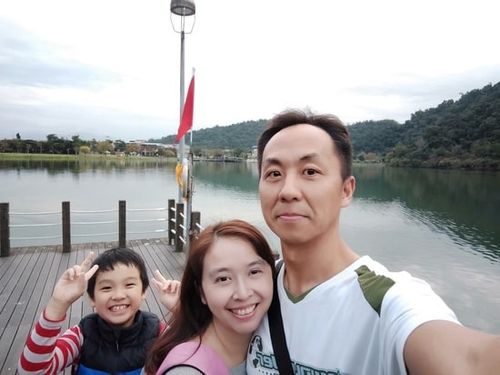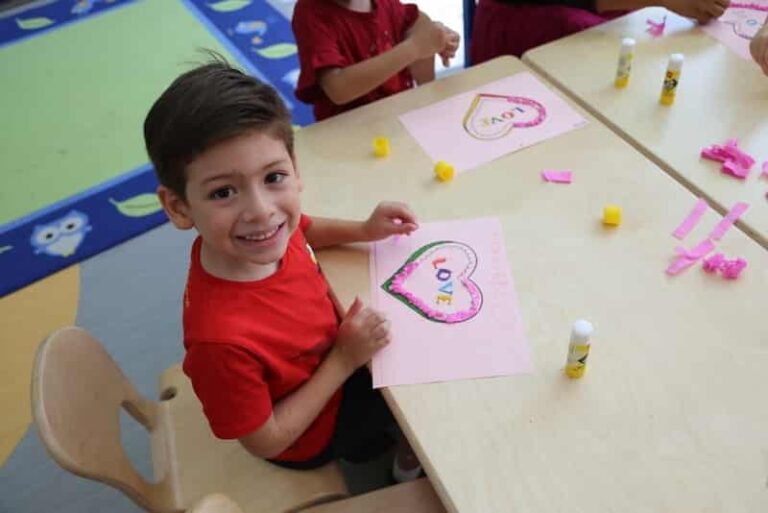We spoke to Chung An C. about his family’s experience of the English as an Additional Language (EAL) programme at OWIS. The family is originally from Taiwan and we talk about their son’s experience in OWIS’ EAL programme.
Q) Why did you decide to enrol your son in the EAL Programme?
My son came to Singapore two years ago. In his preschool education, we traveled back and forth between Taiwan and Singapore for some family reasons, and that makes him more inclined in speaking Chinese at home. I was educated in the US and I would like to create a bilingual environment at home. But that was not the case. Well, he struggled a little bit and I consulted his teacher when he joined OWIS in Grade 1, whether he needs any help from the EAL programme. After an assessment by the EAL teacher, we decided to put him in the English as an Additional Language programme at OWIS.
Q) How did he get on with the programme?
He was enrolled for about a year, and I think he technically graduated in the last term. For me, whether he graduated or not is not the point, the point is that I can see that he’s gaining more confidence in using English. He still does make mistakes, but it doesn’t really stop him using English, especially at home with me and with other people.

Q) Are there any particular experiences of him learning English that you’d like to share?
I can still remember, in the very beginning, I asked him to order. He likes soy milk very much, so I asked him to order soy milk. He said, “Soy milk” and pointed to a picture of it. Right now, he can do it independently without my help. He can say very clearly, “I want soy milk, 25% sugar, cold. I also want a pancake with it.” I’m very happy about it.
Q) Are there any other reasons why you wanted your son to speak and understand the English Language?
It’s my personal experience, I was born and bred in Taiwan and my background is pretty much monolingual. It was not until I went to the United States that I realised the importance of a second language, especially English. I had the opportunity to open my eyes to see the real world just by having a chance to communicate with people, you know, coming from different countries; that’s the first thing. The second thing is, I am doing an academic job and I need to read a lot. It took me quite a long time to be able to read English, so I don’t want my son to experience the same thing as me. Of course, you can see the Chinese translation books, but it seems to me the meaning of the book content can be missing through translation. Also, you may not be able to find all the translations. That is why I want my son to start using this language early and to save time in learning this language when he gets older.
Q) Are you going to encourage him to learn more languages?
Well, I think probably it’s too early for him to learn a third language, but if there’s any chance to keep staying in Singapore, I would like him to learn a little bit about Bahasa Melayu. Yeah, just to know the local things a little bit more that we don’t really know yet. Well this is just a tool for him, and I discussed this with my wife. He can live with only one language, it’s just fine. There is an interesting story in Chinese about a frog living in the well. He says to the eagle, “Look at my world, there’s a lot of fun. Come and have fun with me.” And the eagle is right there, hovering around saying that I’m not going to go deep into your well. My world is big and your world is right there, you can be quite satisfied with what you have. But that’s not really what I want to have.
Q) Is this a view that you have in your own life as well?
That’s also my personal view this year as well. You can be a frog living in the well, it is your choice. But I want you to have the opportunity to be hovering around, looking at the world, to have a broader view. And languages, especially English, are a tool that brings you to the top of the sky.
Q) Are you and your son happy that you enrolled him in the EAL Programme?
My son actually spent some time in Singapore and the preschool education is bilingual right here, he picked up English a little bit. That is why I felt a little bit confused about him needing the EAL programme when he joined OWIS. I didn’t really know whether he really needed the help from EAL. That is why I asked his teacher whether he really needed it. His teacher referred me to the EAL evaluation test. Then after that I said, “Well, okay, just give it a try.” Who knows what he will become, right? And it turns out that I am quite satisfied with the result and the choice I made.
Q) Are there any other experiences that have made an impact on your son’s education?
To be perfectly honest, as a grade two kid, I can really see the way he behaves reflects your educational philosophy of being kind to others. At least what I can see is that he talks about it. When I was teaching him, for example, I asked, “Were you bullied at school by your friends or did your friends treat you well?” He said, “We need to be nice to others.” Okay, that’s what your school teaches you. I think maybe we can also learn from the kids. What we often do as adults is retaliate when we face bullies or unfair treatment. We probably forget that sometimes being nice to others, being gentle to others is a more powerful weapon than retaliation itself.
Thank you, Chung An C., for a brilliant insight into the EAL Programme and school life at OWIS. If you would like to find out more about the EAL Programme, then please contact our admissions team.
(All OWIS photographs in this blog article were taken pre-Covid. The school is adhering to hygiene protocols and social distancing measures as recommended by the CPE and Ministry of Health, Singapore.)














